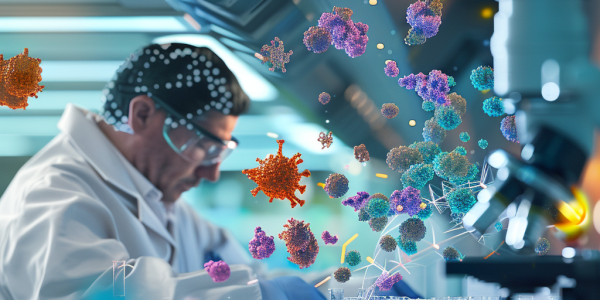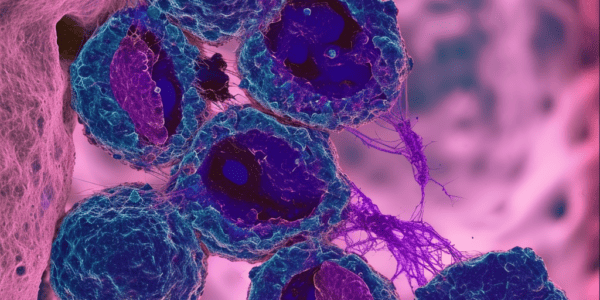Nanotechnology Breakthrough Offers Targeted Treatment for Acute Myeloid Leukemia
Recent advancements in nanotechnology offer a groundbreaking treatment for acute myeloid leukemia (AML). Researchers at UNIST have developed a novel nanoparticle system that selectively targets and destroys leukemia cells while minimizing side effects. This innovative approach could revolutionize cancer treatment, providing safer alternatives to traditional chemotherapy and improving survival rates for patients with AML.
Breakthrough in AML Treatment: New Drug Combination Shows Promising Results
Osaka Metropolitan University researchers have developed a groundbreaking treatment strategy for relapsed and refractory acute myeloid leukemia (AML), combining venetoclax and azacitidine to improve patient survival rates while reducing toxicity. This innovative approach, highlighted in the Blood Cancer Journal, shows that 66.7% of patients treated with this regimen survived after one year, compared to 27.3% in the control group. This advancement paves the way for safer and more effective therapies in the fight against AML.
Breakthrough in Acute Leukaemia Treatment
Recent research published in Nature reveals a potential breakthrough in acute leukaemia treatment, focusing on the role of PI3Kγ in cancer cells. The study identifies a dependency on the PI3Kγ complex in high-risk acute leukaemias, with promising results from treatment with a selective PI3Kγ inhibitor eganelisib. Combining eganelisib with cytarabine shows improved survival rates, offering hope for patients with acute leukaemia.
New Potential Target Identified for Treatment of Acute Myeloid Leukemia
In a groundbreaking discovery, researchers from the University of Hong Kong’s Faculty of Medicine have identified a new potential target for the treatment of acute myeloid leukemia (AML), a fatal blood cancer marked by genetic mutations in bone marrow cells….




